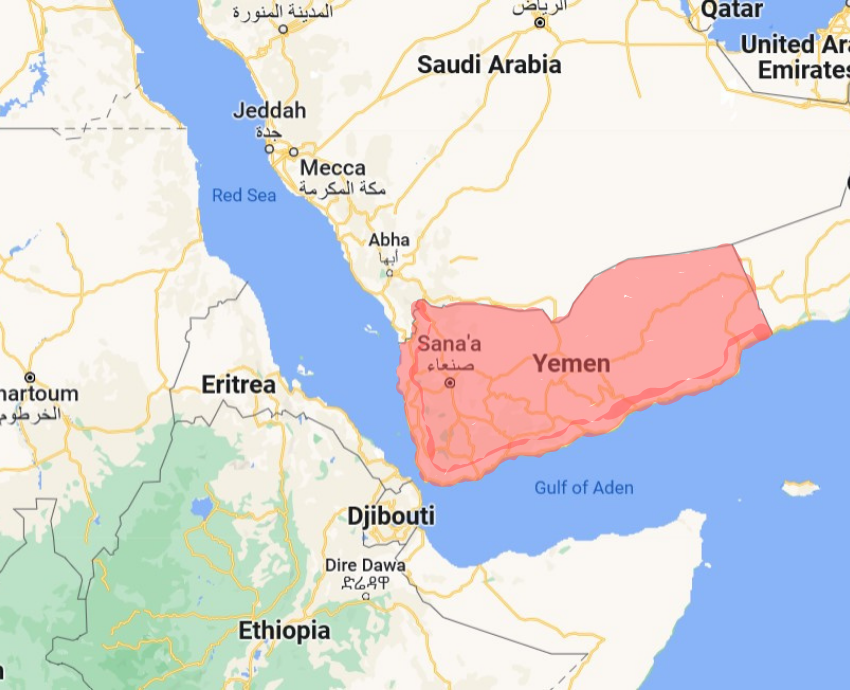
The eight-year-long Saudi war on Yemen looks, at long last, within reach of a resolution. Saudi negotiators will travel to the Yemeni capital for peace talks with their Houthi adversaries. Riyadh has agreed to lift the blockade of commercial imports into Hodeidah, Yemen’s main port, thus easing the humanitarian crisis wracking the Yemeni nation. All of the country’s southern ports will be able to receive commercial supplies.
These negotiations take place in a wider geopolitical context; the increased diplomatic activity of Beijing in the Middle East. Saudi forces, initially expecting a lightning victory, have instead become stuck in a prolonged quagmire by the Ansar Allah movement in South Yemen. The latter have launched large scale retaliatory attacks deep inside Saudi territory.
Riyadh’s losses mounted, and the Saudi rulers decided on rapprochement efforts with Iran and Syria. Those nations are currently under heavy sanctions imposed by the United States. Here is where Beijing stepped in to construct region-wide solutions, thus increasing its standing.
Iran, a supporter of the Yemeni Houthi movement, is a long time rival of Saudi Arabia. The Beijing led diplomatic process has brought these two traditional enemies on a path of reconciliation. Whether that reconciliation will last remains to be seen. Riyadh and Tehran are on opposite sides of the Yemeni conflict.
In an article for The Intercept, Murtaza Hussain elaborates the crucial difference between US intervention in the Middle East, and Beijing’s diplomacy: “Recent farcical US diplomatic agreements like the Abraham Accords did not entail any actual cessation of active hostilities and were largely based on US concessions rather than any made by the involved parties. Unlike those deals, the Chinese-brokered rapprochement between Saudi Arabia and Iran represents a genuine diplomatic accomplishment in which two rival powers were convinced to make compromises in the name of peace.”
Decades of militarised US foreign policy contrasts with the reasonable diplomatic approach of Beijing. The latter succeeded in working out a ceasefire in Yemen — something US President Joe Biden has been promising for the last two years. The US has a long track record of undermining and sabotaging efforts to reach peace agreements between belligerent parties in the Middle East. Indeed, US policy has actively escalated hostilities in the Arab and Islamic worlds, prioritising military sales over respect for human rights.
Ryan Grim, writing in The Intercept, notes that Washington has enthusiastically supported Saudi Arabia’s invasion of Yemen for eight years. There has been an uninterrupted supply of weapons and logistical support to the Saudi military from Washington and London. All efforts to resolve the conflict peacefully were scuttled by Riyadh and its unwavering backer, the US.
The US-British supported Saudi war on Yemen has resulted in the world’s worst humanitarian catastrophe. While all the corporate media coverage focuses on the suffering of the Ukrainians — who are white and Christian — the Yemeni population have suffered near-starvation conditions as a result of the Saudi-imposed blockade.
Back in 2020, Kathy Kelly wrote of the Saudi-Yemen war that the US, through its policies, was responsible for prolonging the suffering of the Yemeni people. Former US Secretary of State Mike Pompeo, declared that the supply of aid and supplies to Houthi-controlled areas, limited as they were, should be reduced. Just to clarify, the US intends on starving the Yemeni population, because it opposes the Houthi government — a barbaric philosophy implemented by regimes guilty of war crimes.
But the Houthi movement are proxies of Iran, aren’t they? No, they are not. While there are ideological similarities between the Yemeni nationalist Houthis and the regime in Tehran, it is a grave error to dismiss the Houthi militia as merely Iranian puppets. They have their own ideological development; a combination of Arab nationalism and Zaidi Shia religious dedication. While they are Shia, they differ from the predominantly Twelver Shia communities that constitute the majority followers of Shia Islam.
Thomas O Falk, writing in Al Jazeera, states that the Houthi movement has launched successful armed strikes not only against Saudi Arabia, but also against the other Gulf partner of Riyadh, the United Arab Emirates. The Emiratis joined the Saudi attack on Yemen, and quickly carved out their own economic and political interests in Yemen. Seeking to establish their own sphere of influence in southern Yemen, the Emiratis quickly became targets of Houthi forces.
Stephen Zunes, professor of politics at the University of San Francisco, states that while there are valid criticisms of the Houthis, the latter are hardly Iranian puppets. Indeed, the only reason that Iran has gained influence with the Houthi movement — limited as it is — is precisely because of the Saudi invasion. The Yemeni Houthis are not tied to any Iranian military command structure, or integrated into any Iranian forces.
There is still a long way to go to achieve a durable peace in Yemen. The diplomatic efforts of Beijing in bringing Riyadh and Tehran together does not mean that the Saudis and Iranians will become best friends. The ceasefire will hopefully lead to a political transition phase, thus ushering in a new era of peaceful development for Yemen.